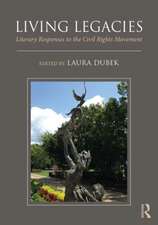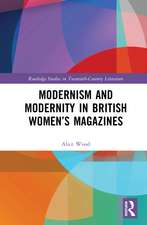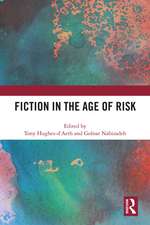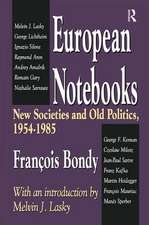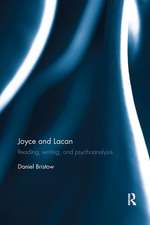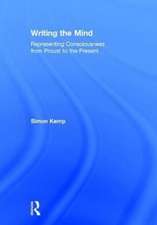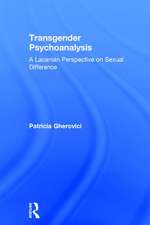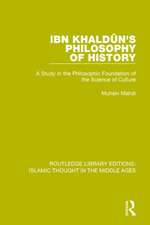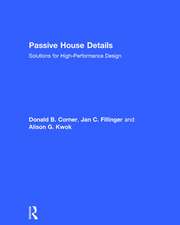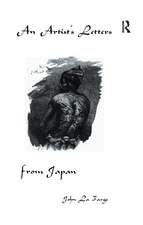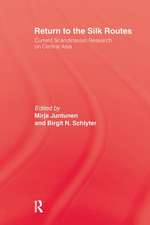Resistance to Science in Contemporary American Poetry: Routledge Interdisciplinary Perspectives on Literature
Autor Bryan Walperten Limba Engleză Paperback – 23 aug 2018
| Toate formatele și edițiile | Preț | Express |
|---|---|---|
| Paperback (1) | 469.34 lei 43-57 zile | |
| Taylor & Francis – 23 aug 2018 | 469.34 lei 43-57 zile | |
| Hardback (1) | 1059.48 lei 43-57 zile | |
| Taylor & Francis – 26 sep 2011 | 1059.48 lei 43-57 zile |
Din seria Routledge Interdisciplinary Perspectives on Literature
-
 Preț: 277.97 lei
Preț: 277.97 lei -
 Preț: 311.26 lei
Preț: 311.26 lei -
 Preț: 377.87 lei
Preț: 377.87 lei -
 Preț: 339.95 lei
Preț: 339.95 lei -
 Preț: 311.56 lei
Preț: 311.56 lei -
 Preț: 309.27 lei
Preț: 309.27 lei -
 Preț: 310.29 lei
Preț: 310.29 lei -
 Preț: 310.60 lei
Preț: 310.60 lei - 9%
 Preț: 1007.24 lei
Preț: 1007.24 lei -
 Preț: 371.71 lei
Preț: 371.71 lei - 26%
 Preț: 819.48 lei
Preț: 819.48 lei -
 Preț: 442.71 lei
Preț: 442.71 lei - 18%
 Preț: 1110.74 lei
Preț: 1110.74 lei - 26%
 Preț: 877.19 lei
Preț: 877.19 lei - 18%
 Preț: 1117.43 lei
Preț: 1117.43 lei -
 Preț: 486.38 lei
Preț: 486.38 lei - 18%
 Preț: 700.62 lei
Preț: 700.62 lei - 18%
 Preț: 1063.31 lei
Preț: 1063.31 lei - 18%
 Preț: 707.86 lei
Preț: 707.86 lei - 18%
 Preț: 1117.07 lei
Preț: 1117.07 lei -
 Preț: 488.29 lei
Preț: 488.29 lei - 18%
 Preț: 1057.05 lei
Preț: 1057.05 lei -
 Preț: 383.63 lei
Preț: 383.63 lei - 18%
 Preț: 1109.99 lei
Preț: 1109.99 lei - 18%
 Preț: 1113.16 lei
Preț: 1113.16 lei - 5%
 Preț: 1223.90 lei
Preț: 1223.90 lei - 18%
 Preț: 1036.35 lei
Preț: 1036.35 lei - 18%
 Preț: 1057.89 lei
Preț: 1057.89 lei -
 Preț: 448.49 lei
Preț: 448.49 lei - 18%
 Preț: 1109.99 lei
Preț: 1109.99 lei - 18%
 Preț: 1052.35 lei
Preț: 1052.35 lei - 18%
 Preț: 1118.82 lei
Preț: 1118.82 lei - 18%
 Preț: 1057.09 lei
Preț: 1057.09 lei - 28%
 Preț: 822.01 lei
Preț: 822.01 lei - 18%
 Preț: 1053.16 lei
Preț: 1053.16 lei - 18%
 Preț: 1112.90 lei
Preț: 1112.90 lei - 18%
 Preț: 1109.99 lei
Preț: 1109.99 lei - 18%
 Preț: 1054.27 lei
Preț: 1054.27 lei - 18%
 Preț: 1112.34 lei
Preț: 1112.34 lei - 5%
 Preț: 1222.85 lei
Preț: 1222.85 lei - 18%
 Preț: 1110.74 lei
Preț: 1110.74 lei - 18%
 Preț: 1111.58 lei
Preț: 1111.58 lei - 18%
 Preț: 1112.21 lei
Preț: 1112.21 lei - 18%
 Preț: 1058.38 lei
Preț: 1058.38 lei - 18%
 Preț: 1059.84 lei
Preț: 1059.84 lei
Preț: 469.34 lei
Nou
Puncte Express: 704
Preț estimativ în valută:
89.84€ • 97.62$ • 75.51£
89.84€ • 97.62$ • 75.51£
Carte tipărită la comandă
Livrare economică 21 aprilie-05 mai
Preluare comenzi: 021 569.72.76
Specificații
ISBN-13: 9781138378025
ISBN-10: 113837802X
Pagini: 232
Dimensiuni: 152 x 229 x 15 mm
Greutate: 0.45 kg
Ediția:1
Editura: Taylor & Francis
Colecția Routledge
Seria Routledge Interdisciplinary Perspectives on Literature
Locul publicării:Oxford, United Kingdom
ISBN-10: 113837802X
Pagini: 232
Dimensiuni: 152 x 229 x 15 mm
Greutate: 0.45 kg
Ediția:1
Editura: Taylor & Francis
Colecția Routledge
Seria Routledge Interdisciplinary Perspectives on Literature
Locul publicării:Oxford, United Kingdom
Public țintă
Postgraduate and UndergraduateCuprins
Acknowledgements Introduction 1. Popularization, Praise, and the Aesthetic Pleasures of Science 2. Poetry, Science and Claims on Knowledge 3. The Ghost of Romanticism: Perception and Imagination 4. The Ghost of Modernism: Relativity of Knowledge 5. The Ghost of Language: The Postmodern Subject and the Poiesis of Science 6. The Ghost of Science: Knowledge as Intervention Epilogue Notes Works Cited Index
Descriere
This book examines types of resistance in contemporary poetry to the authority of scientific knowledge, tracing the source of these resistances to both their literary precedents and the scientific zeitgeists that helped to produce them. Walpert argues that contemporary poetry offers a palimpsest of resistance, using as case studies the poets Alison Hawthorne Deming, Pattiann Rogers, Albert Goldbarth, and Joan Retallack to trace the recapitulation of romantic arguments (inherited from Keats, Shelly, and Coleridge, which in turn were produced in part in response to Newtonian physics), modernist arguments (inherited from Eliot and Pound, arguments influenced in part by relativity and quantum theory), and postmodernist arguments (arguments informed by post-structuralist theory, e.g. Barthes, Derrida, Foucault, with affinities to arguments for the limitations of science in the philosophy, sociology, and rhetoric of science). Some of these poems reveal the discursive ideologies of scientific language—reveal, in other words, the performativity of scientific language. In doing so, these poems themselves can also be read as performative acts and, therefore, as forms of intervention rather than representation. Reading Retallack alongside science studies scholar Karen Barad, the book concludes by proposing that viewing knowledge as a form of intervention, rather than representation, offers a bridge between contemporary poetry and science.









